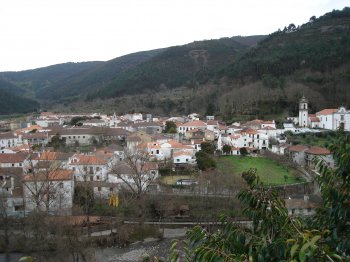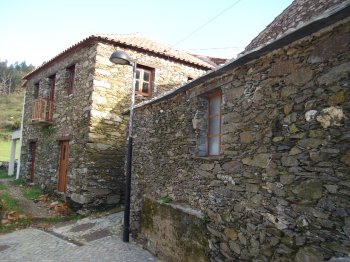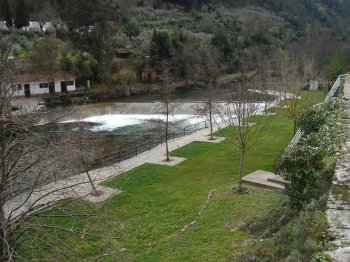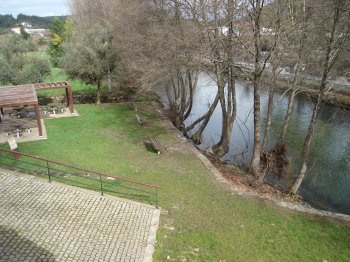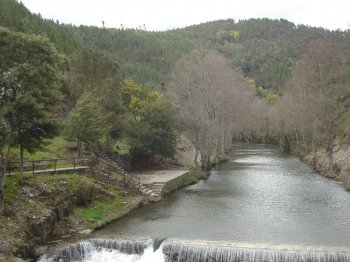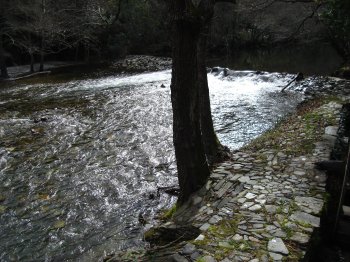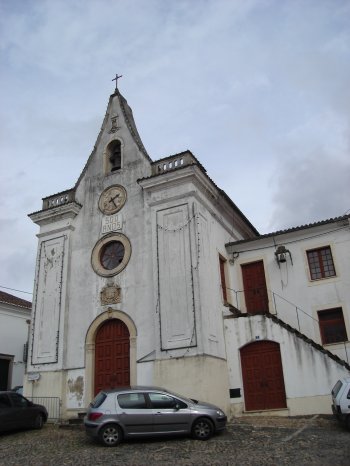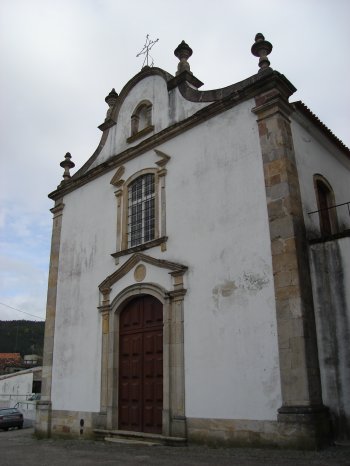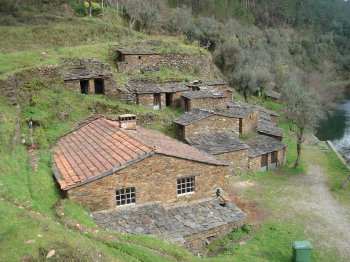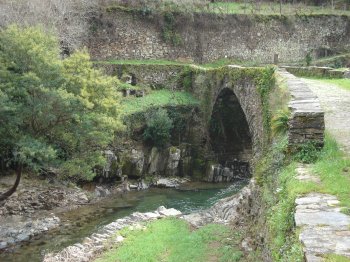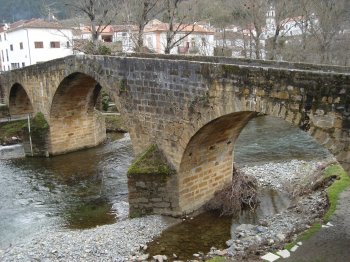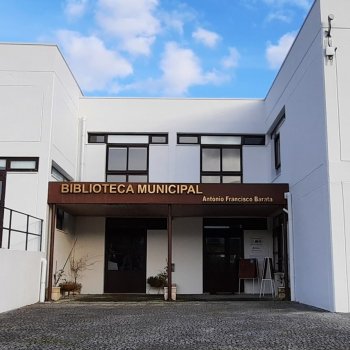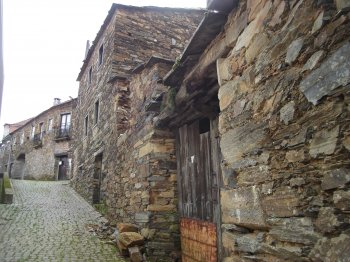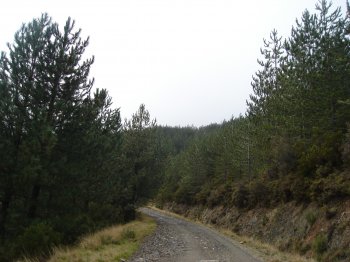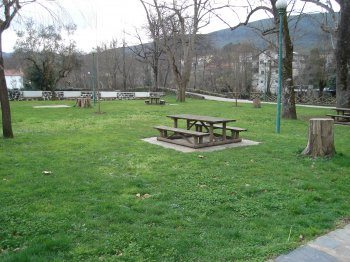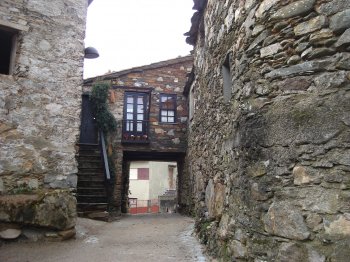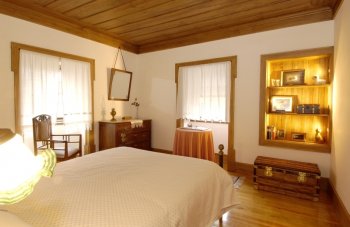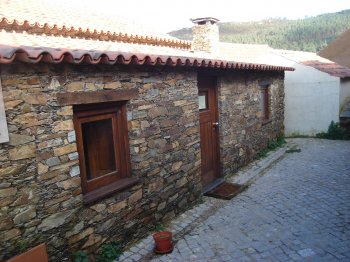Góis
Góis is a small rural municipality 40 kilometers from Coimbra. It is located in the Ceira valley and existences for more than eight centuries. The 16th century lines of Góis' topographical layout remain today, despite the changes that the passage of time has imposed. Although small, the municipality preserves valuable architectural monuments from the 17th to 19th centuries, as well as magnificent green spaces, characterized not only by the beauty of the landscapes, but also by its tranquility. The cuisine follows the flavors of the surrounding regions. Chestnut soup, "chanfana", stuffed tripe, cracklings, "tibornada" cod and sardine rice are some of the most characteristic. For sweets, "Bolo de Góis", "Bolo da Várzea", rice pudding and honey "filhós" are very popular.
What to do in Góis
Where to eat in Góis
Where to sleep in Góis
Typical house construction in shale, inserted in a natural setting of great beauty, surrounded by a mountain and a river with waterfalls and ponds. Was recover…
19TH century House, classified as Property in the public interest, with quirky décor, creating a very pleasant and welcoming environment. The whole House is eq…
House situated in the village of Comareira, one of the schist villages of serra da Lousã. Is administered by Lousitânea-League of friends of Lousã, which promo…
Near Góis
Penela
Located in the center of the country, Penela is the southernmost municipality in the district of Coimbra, bordering Ansião, Figueiró dos Vinhos, Cond…
Figueira da Foz
Known as the “Queen of the Silver Coast”, its beautiful and extensive beaches attract tourists from all over the world, also seduced by the Casino, h…
Penacova
The municipality's toponym derives from the combination of the term “pen” and “cova”, the first of which gave rise to the Portuguese word "penha" (hi…
Tábua
Framed by the Estrela, Lousã, Buçaco, and Caramulo mountain ranges, the municipality of Tábua includes small hills, valleys, rivers, and streams that…
